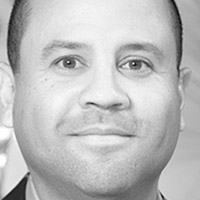Will New Corporate Tax Plans Hurt the U.S. in the End?

The winds of change are blowing when it comes to taxes and corporate taxes are no exception. President Trump and the House are both ready to lower the corporate tax rate in an effort to create a more business friendly environment for U.S. companies here in the states. Currently, the corporate tax system is a mess, which is why so many large companies keep so much of their earnings overseas, and that costs the U.S. billions in tax revenue.
The basic premise behind the current administration’s plan is to change the current model of tax on the return to capital into a model that taxes only extraordinary profits. The plan would do this by taxing corporate cash flows. The plan would make three major changes to accomplish this.
Number one, any investment outlays would not have to be depreciated over time, but instead they could be written off during the same year they were undertaken. The next major change would make interest payments to creditors non-tax-deductible. Lastly, in order to continue to promote our county’s competitiveness with the rest of the world, corporations would not have to include export receipts when they calculate their taxable income. On the other hand, they would not be allowed to deduct from their income payments to foreign affiliates and suppliers.
However, there are some who feel this plan could be very detrimental to our nation’s economy in the long run. The first problem is that the change could increase income inequality even more between the wealthy the rest of the country. The tax change could also increase uncertainty, put additional burdens on certain sectors and cause a volatile redistribution of income. The tax change could also hurt the global economy, according to some circles and the long-term of cost of making this tax change could end up causing large tax increases or spending reductions.
Of course, there are two sides to every story, so it remains to be seen what changes are made and how they will affect corporations and our nation’s financial well-being.
https://www.nytimes.com/2017/01/07/upshot/the-major-potential-impact-of-a-corporate-tax-overhaul.html?_r=0
https://www.washingtonpost.com/opinions/trump-and-ryan-are-right-to-tackle-corporate-taxes-but-their-approach-would-do-harm/2017/01/08/e7abd204-d429-11e6-9cb0-54ab630851e8_story.html?utm_term=.fd3e2b28a833
Inside Wall Street | Tim Sanchez
About Tim Sanchez Tim Sanchez grew up in Oakland, CA. He attended the University of San Francisco where he completed his undergraduate degree in Information Systems Management and dual MBA’s from the Haas School of Business at the University of California at Berkeley and the Columbia University Graduate School of Business. Tim has worked…
Community Leadership – Dave Smith, Former Newark Mayor
About Dave Smith Dave Smith grew up in humble circumstances in Michigan. He attended Michigan Tech University and upon graduating college he wound up in the plastics business as an industrial engineer which brought him out to California. In California he quickly became acquainted with the Jaycee’s organization which focused on community service and…
The Future of Venture Capital | Chris DiGiorgio
About Chris DiGiorgio Christopher DiGiorgio is an Executive Research Fellow (emeritus) at the Accenture Institute for High Performance. Before joining the Institute he had responsibility for Accenture’s overall practice in the Bay Area as the Managing Director with over 2300 professionals. Chris also previously led our High Tech practice in the Silicon Valley and lead…
Back to The Roots | Nikhil Arora
About Nikhil Arora Nikhil Arora co-founded Back to the Roots (Oakland, CA) in 2009 as a senior at UC Berkeley and gave up a potential career in consulting to become an urban mushroom farmer. Nikhil oversees the marketing and product development half of the business and along with his co-founder, Alejandro Velez, has led…




